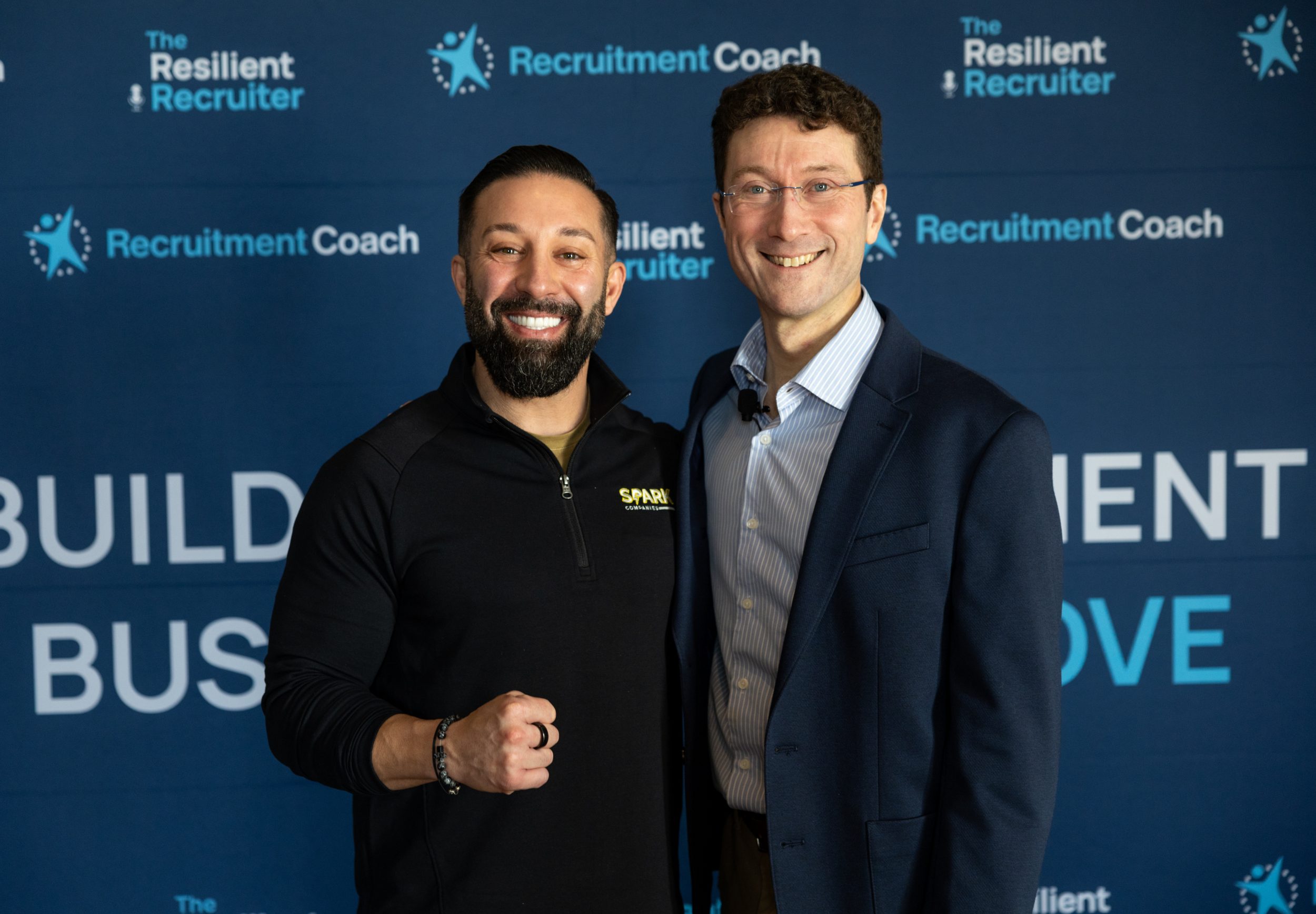Growing a recruitment business to 7 or 8-figure portfolio companies might be much simpler than you think. Few firm owners achieve this, but Aaron Opalewski stands as an example of this entrepreneurial success. He co-founded his first staffing company at just 24 and has nurtured his second venture into a portfolio of seven staffing companies across various industries. Remarkably, three companies consistently make 8-figure revenues, while one of them, Spark Packaging, hit 7-figures within its first year.
In this episode, we discuss invaluable insights on how recruiters can fortify their businesses for growth with a special guest, Aaron Opalewski. Aaron is the CEO and founder of Spark Talent Acquisition, a company he launched in 2013 at the age of 29. He is also a partner in two other companies outside of staffing and holds investments in the food and beverage industry.
Join us as we explore strategies for structuring businesses, optimizing operations, boosting gross profit, delegating tasks, nurturing client relationships, and building successful partnerships. Tune in for a wealth of wisdom and actionable advice from Aaron’s journey of entrepreneurial triumph.
Episode Outline And Highlights
- [02:38] How Aaron got into the recruiting space
- [03:59] What it takes to start and launch a staffing company
- [08:00] The keys to a successful business partnership
- [09:54] How delegation and promotion have helped Spark Talent excel
- [15:18] How to structure a recruiting company for lifetime customer value
- [24:33] Tips on how to nurture clients and maintain good relationships
- [30:10] How the contract and direct side of a recruiting business works
- [32:35] Why GP is the most important metric for growth
- [38:06] How to identify target companies for merger and acquisition
- [41:27] How to get alignments and nurture clients on social media
- [44:57] How mergers work in improving GP to over the million dollars range
- [48:25] Growth loops and profit strategy to level up business operations
- [57:15] What is the difference between recurring and contract revenue flow
How Recruiters Can Structure Their Firms for Lifetime Value
During our conversation, Aaron and I discussed Spark Talent and how he has steered it into a thriving portfolio comprising seven staffing companies across different sectors over the past decade. Aaron shares that everyone assumes the role of recruiters within his business. As the founder, he personally interviews prospective team members, positioning himself as the primary recruiter across all his ventures. He emphasized the importance of this role, asserting that as a business owner, one must take charge of internal recruitment, honing recruitment skills as diligently as serving clients. Aaron firmly believes that sourcing and nurturing the right talent through extensive training, coaching, and support makes success almost inevitable. He stressed that while failures may occur in other aspects, assembling the right team and fostering their growth ensures a solid foundation for success.
Discussing the organizational structure, Aaron outlined the various roles within their teams and business setup, which include recruiters, account managers, business developers, internal and external apps teams, and portfolio managers overseeing the seven companies. Aaron underscored that recruiting forms the cornerstone of their operations, extending to every area of their business, even extending to the front-end relationship with business development personnel. However, in the early stages, Aaron recalled a time when salespeople juggled multiple roles, from accounting to business development and recruitment. However, he acknowledged that this approach diluted the customer experience and diminished lifetime value, prompting them to restructure and specialize roles for optimal efficiency and client customers’ lifetime value.

Nurturing Client and Building Longterm Relationships
Aaron shares the importance of nurturing clients and building long-term relationships. He explains how customers’ value has changed over time. In 2018, they were actively building with 80 to 90 clients every week, focusing heavily on business development. By 2019, they had signed over a hundred new service agreements, but their active clients remained the same. In 2020, their active clients started to decrease, making Aaron realize they needed to do a better job to improve.
To address this, Aaron explains that they had to shut down new business development from March 2020 to the end of 2022 to concentrate on building their client base. It wasn’t until 2023 that they resumed the new business development lever, raising their active service agreements to over 50%. However, Aaron acknowledged they still have much work to improve further.
Aaron then shared strategies for building and nurturing clients:
- Mindset Shift: Aaron emphasized the need to shift from a mindset of easily finding new clients if things don’t work out with current ones. He believes this mindset can harm client relationships and should be addressed through cultural values within the team.
- Training for Maintaining Relationships: According to Aaron, maintaining good customer relationships is often overlooked and never discussed enough. Recruiters should make training an ongoing development to remind their teams of the things they have learned and what they need to tweak
- Focus on Value: Aaron highlighted the significance of consistently delivering value to clients. He encouraged recruiters to always find ways to deliver value, fulfill their promises, go above and beyond, and exceed client expectations.
Role Clarification: Running a recruiting business is a lot of work, and ensuring roles are well-defined can help recruiters avoid diluting the value they offer clients. Having clear roles and responsibilities helps improve services, strengthen client relationships, and scale the roles effectively.











